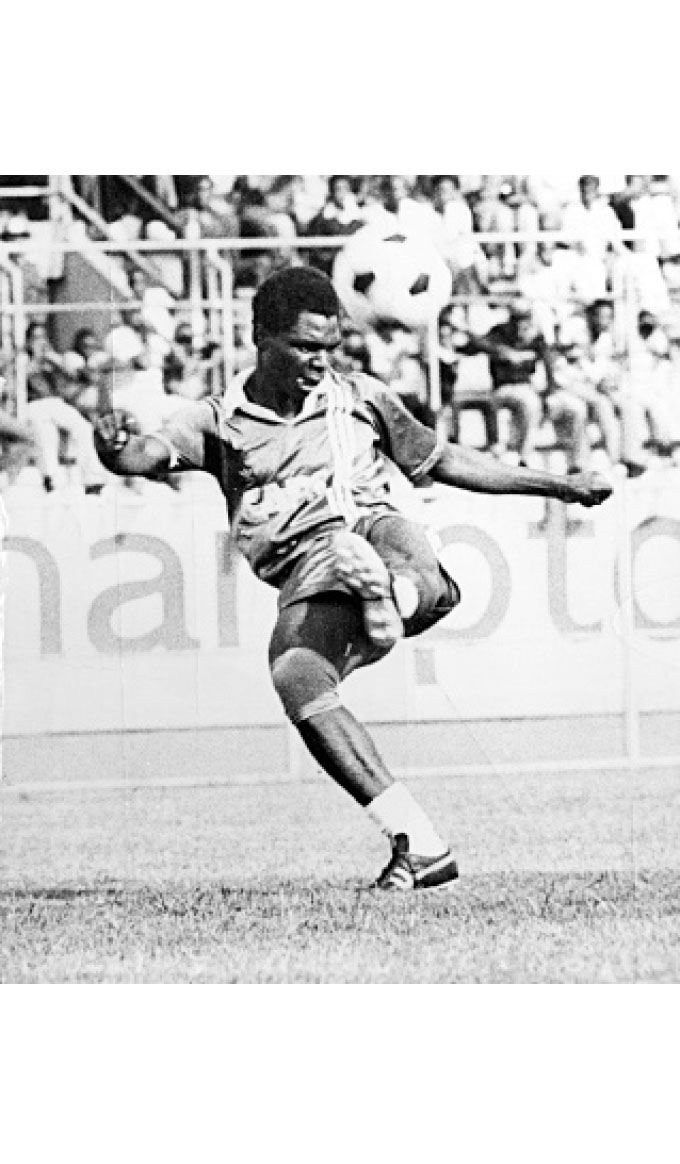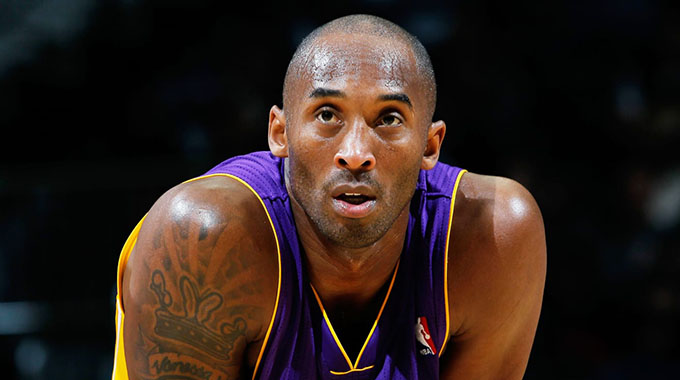Living next-door to celebs: Part 2

Elliot Ziwira Senior Writer
I was born in the ghetto
And my mama is in the ghetto
My heart is in the ghetto
You can call me the ghetto boy
I was born in the ghetto
Yes my papa is in the ghetto
My heart is in the ghetto
You can call me the ghetto boy
You can take me out of the ghetto
And can never take me there again
But you never take the ghetto out of me. . .
You can call me the ghetto boy
So aptly croons the lyrical maestro Oliver Tuku Mtukudzi in the song “Ghetto Boy”.
Yes, no matter what happens; no matter how much you would have achieved or what would become of your star, home will always remain that space which claimed your milk teeth. You may also have gone on to dine with some of what the world may call the cream in ice cream, at the best hotels or other eateries where exotic cuisine may be served, but none of that will ever beat dearest mummy or granny’s culinary touch. No matter how spacious your mansion now is, that tiny space in the ghetto remains the best thing that ever happened to you.
Yes, we grew up in the ghetto, where everyone would cheerfully greet each other: “Ndeipi blaz, muri kenge here?” or “Hi sonny uri sharp here?” Ghetto fabulous; where a neighbour would call us and send us to the magrossa (shops) without even taking the burden of asking our parents first, and off we would go.
We would set our goalposts in the streets and partake in a game of soccer with our cherished chikweshe (plastic ball), and momentarily break to allow elders to pass or when a rare jalopy happened to hoot its way past our stone goalposts. Eight times out of 10 we knew the drivers and occupants of the jalopies (Zephyr Zodiacs, Morris Minors, Ford Cortinas, Peugeot 404s/504s, Toyota Crowns and “half-tonnes”) by name.
We would play a fast passing game whose rather vulgar name I cannot repeat here; the one in which a guy would be chasing the ball and whoever had the misfortune of losing it became the tail chaser, you remember it? We would draw lines to mark tennis courts on the tarred roads, yes, neatly tarred roads. There were no dusty streets in the ghetto of our youths. With our improvised rackets we would sweat it out on the ‘court’ until papa appeared, and we would know that it was time to water the garden.
And if it so happened that one of our peers chanced on a real soccer ball, golf ball or cricket ball, gosh, it would be hallelujah. We would immediately create pitches and improvise golf sticks and bats, to hoist ourselves into the hilarious world of the other side of the quo. We would walk to Afgate in the Willowvale industrial area to fetch pieces of wire for the designing pleasure of “car manufacturers” among us.
Talents were discovered, talents were identified and nurtured that way in the ghetto streets of our dreams. There was so much raw talent waiting to be discovered or discovering itself maybe. We would share books, magazines and newspapers. Reading was a pastime then. We would share stories from novels (Shona and English), and anything in print. We would go kufirimu at Glen Norah Hall courtesy of Mandebvu Film Shows.
Secondary school separated us a bit as some of us would go to boarding schools or the so-called former Group A schools, and others would go to so-called Group B schools. Western forms of education would further separate us at A-Level, and careers placed a wedge among us as the stars shone differently at us. However, the ghetto remained, and still remains our link.
There was much inspiration in the ghetto, pertinently our Glen Norah hood, like I alluded to in the previous instalment. See, am trying not to let my story run ahead of itself, am also trying to be space conscious.
Maybe I am just being nostalgic, but I have just remembered something. I would not go to school until I heard a word being spelt out on radio: “J-A-R-Z-I-N” followed by the phrase: “Ndini wenyu Jarzin Man, Admire Taderera ndichiti yave nguva yeku kurukura nevatengi”. In those days the customer was king! I would know then that 6.45am had struck, but it would take me five more minutes to leave home. I don’t know if it was by coincidence, but I would come back home to the eerie tune of the programme Zviziviso Zverufu on Radio Two.
Yes, I was born in the ghetto, you can call me the ghetto boy, I don’t mind. This quiet borough am in now is really not where my heart is, so spacious yet so mean and suffocating, where everybody knows nobody, and the milkman’s bell no longer clinks like it used to.
Well, Simon Mudzudzu, like I said in the previous instalment, featured in the title-grabbing Metal Box team of 1973 under Allen Davey, alongside July Jujuju Sharara, Oliver Kateya, Austin Nehumba, Shadreck Kateya, Sunday Marimo (Chidzambwa) and Chita Antonio.
Mudzudzu’s house was third from ours in the direction of Chembira Hall. He would later move from our rich glen to yet another vale or borough, an affluent one, Glen Lorne.
Shadreck Kateya, Oliver’s elder brother and Jujuju lived two streets behind ours (same Metal Box lines), and worked with my father at Metal Box Central Africa Limited, the owners of Metal Box Football Club. Sharara’s son Tatenda was my junior at Oriel Boys School. An immensely gifted striker, Shorty as we affectionately called him charmed football gods at OBS and in the process captured the hearts of many on either side of the toss since Form One. He would later earn first team colours at Churchill Boys School where he did his Advance-Level. Wonder why the football gods could not redirect the diminutive dynamite’s scorchers to the golden nets of his dreams!
David George, who was also my father’s workmate, played for Dynamos and lived in our hood, kumaflats. His son, Robson, who would later have a stint with the Glamour Boys, was in the same stream with my brother Shepherd. We would play money-games with him at Chidyamatamba, a makeshift playground in our hood, close to Chembira Hall and Chikomo cheMbira.
In this generation of yesteryear soccer greats were also Oliver Chidemo, David Mandigora, Jawet Nechironga and Shacky Tauro.
Chidemo played for Caps United, formerly Caps Rovers alongside such great players like Cainos Chidungwe, goalkeeper Steven Chisango, Solomon Kaseke, James Chobodo, Salid Twaliki, John Muzveruki and Tauro. Together they won their maiden championship trophy in 1979 in the same year that Tauro was crowned Soccer Star of the Year. Famed for scoring a hat trick against Wadi Medani of Sudan in the early 1980s, Chidemo later worked for the University of Zimbabwe. As the University of Zimbabwe Football Club coach from the late 1980s to early 1990s, he groomed players like Tauya Murehwa (Dynamos), Bernard Muchemwa, Elliard Mambambo, Prosper Chonzi, Arnold Tsunga, Simba Manjiche, Brilliant Mpofu (Blue Swallows), Nkululeko Malaba (Black Rhinos), Ladistos Zunde, Godfrey Pasipanodya and Steven Murambatsvina.
A new generation of players to emerge from the ‘hood in the twilight of the careers of the football teachers whose journeys have been so far tracked had players like Shackman “Mr Goals” Tauro, Friday “Breakdown Phiri” and Moses Chunga.

Moses Chunga
Moses Razorman Chunga became part of the hood in 1983, the year he joined the Glamour Boys through acquisition of property in Glen Norah B near Chikomo chemaRasta when he was only 18 years old. At Dynamos, Razorman shared the dressing room with his siblings Kembo and Dickson. The house was being sold through an estate agent for $6 000, and he secured the property after paying a deposit of $1 000, and cleared the balance within a year.
Famed for doing just about anything with the ball, including standing on it and scoring directly from a corner kick; a fit which he achieved not less than 15 times, Chunga won the hearts of many, including my tender one, even though I never was a Dynamos fan. I dreamt and slept CAPS United, and I would tell anyone who cared to listen: “KuDynamos ndongoda Moses Chunga”.
At some point he stayed with his younger brother Dickson in our hood, but I guess we should not claim him.
Charles Mabika would go: “… to Moosses Chuuunga, going solooo”, and you would know that trouble and heartbreak wore a number seven blue jersey. Nicknamed Razorman, because of his precision in front of goal, Chunga banged in 46 goals in the 1986 season. He would leave the hood for a stint in Europe in 1987, where he turned out for the Belgian side Eendracht Aalst. Sometime after his return from Belgium in the early 1990s, Bambo sold his Glen Norah house and bid farewell to the hood.
Mr Goals enchanted my heart. He simply was in a class of his own. Born on June 28, 1959, Tauro attended Rusvingo Primary School in Highfield. Zororo Youth Centre in the same suburb played a pivotal role in nurturing the football zeal in him. Tauro joined our hood courtesy of his employers and CAPS Private Limited, the owners of CAPS United then. We had friends kumalines ekuZvimba where he stayed.
I once met someone, the name slips me now, but he was a teacher at Glen Norah High 2, who attended primary school with Tauro at Rusvingo, and he said the star could effortlessly tear defences apart and score goals in double digits in a single match. He claimed that Shacky’s Rusvingo team could sometimes beat opponents for 29 or 33 (29-0/33-0).

Shackman Tauro
Other soccer players to emerge from Glen Norah are Kudzanayi Taruvinga, Tobias Sibanda, David Phiri, Tobias Sibanda, Oscar Motsi, Tidings Keta,
Benjamin Mpofu, Basil Chisopo, Mike Madzivanyika and Amidu Hussein.
This generation of players was followed by the likes of Vitalis Takawira, Dumisani, George “Gazza” Mandizvidza, Dumisani “Commando” Mpofu, George Nechironga, Francis Nechironga, Edwin Farai, Lloyd “Toga” Pfupa, Robson George,
Mike Temwanjira and Justman Kopera.
Toga played for CAPS united, and had a coaching stint with the now defunct Buymore before joining Thomas Mukanya Mapfumo’s Sporting Lions as an Assistant gaffer. Toga lived a stone’s throw from Spaceman Bar, muline manaMbigo. We would meet a lot of players kwaMbigo or at Toga’s. Mukanya would also frequent the place.
Commando bought a house in Glen Norah C. I first met him through Edwin Mutimbanyoka who was married to my would-be wife, Linda’s sister Prisca. Eddie, a mechanic of repute, was Mpofu’s buddy, and the couple once stayed at Commando’s house. Both Eddie and Prisca are now late.
But the rich valley was not yet done; from its belly new gems continued to sprout. Out came Tinashe “Father” Nengomasha, Dickson Choto, James Matola, Artwell Mabhiza, Washington Pakamisa, Tsungai Mudzamiri, Rodney Makawa, and later Abbas Hussein.
A midfield maestro, Nengomasha played for Douglas Warriors and Black Aces before Joining South African Giants, Kaizer Chiefs, and later Bidvest Wits. He was named South Africa’s Footballer of the Year (2003-2004), and won the South Africa PSL Players Player of the Year Award (2003-2004). Father was part of the Warriors team that played in the 2004 AFCON finals held in Tunis under the legendary Sunday Chidzambwa. The star-studded team included skipper Peter Ndlovu, Lazarus Muhoni, Wilfred Mugeyi and Kaitano Tembo.
I first met Choto at Glen Norah High 2. He was an O-Level pupil then, and I had just secured a post as a teacher. I would meet a fellow teacher who attended school with Tauro as alluded to earlier on. I would become the coach of the school’s B and A teams, assisted by my brother Shepherd. Solid and composed, Choto, was the rock in our defence. There were many talented players in the team that included the twins Justice and Justin, Prosper and Brighton who were goalkeepers, my brother Farai (also a goalkeeper), and Munyaradzi “Chipopi” among others whose names are eluding me.
Choto would go on to play for Darryn Textiles before moving to Poland. Between 2001 and 2013, he played for three Polish teams; Gornik Zabrze (2001-2002), Pogon Szczecin (2002-2003) and Legia Warszawa (2003-2013). After making an impression in the Polish league, Choto was called for national duty and played in the history making Warriors team of 2004 under Sunday Chidzambwa. He won two Polish championships with Legia Warszawa (2006, 2013), four Polish Cup titles, and one Polish Super Cup trophy. He currently runs a football academy.
To be continued. . .









Comments